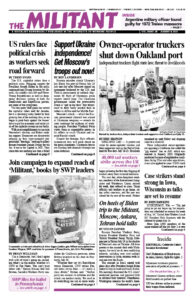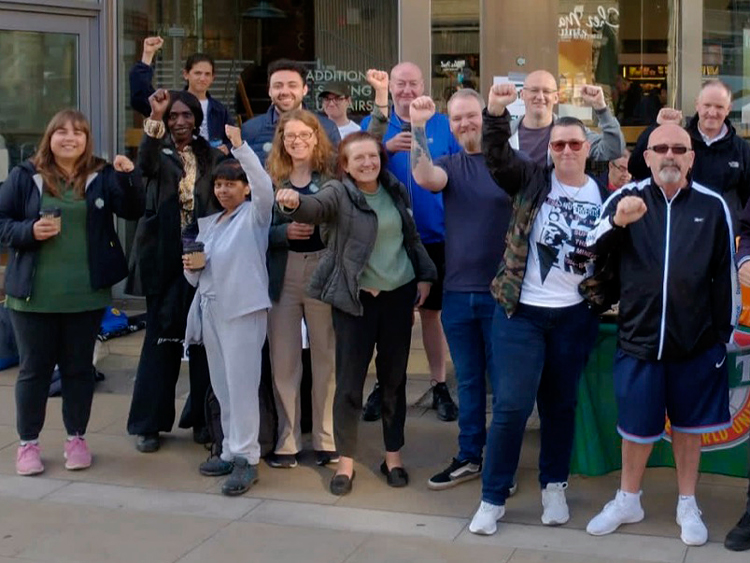LONDON — Forty thousand members of the Rail, Maritime and Transport union stopped work and joined picket lines around the country July 27. Workers — cleaners, signalers, maintenance workers, station staff and others — are fighting for an inflation-protected wage rise and against job cuts and anti-worker changes to their conditions.
After weeks of negotiations, this was the fourth stoppage. The union has announced two more in August. Five thousand train drivers, members of the Associated Society of Locomotive Engineers and Firemen, have set a nationwide strike for July 30.
“If anything, the employers’ offer has got worse,” rail worker Conor Price told the Militant on the picket line at Piccadilly station in Manchester. Joining the large picket were workers employed by different train operating companies and from the firm responsible for rail infrastructure and stations, Network Rail.
Network Rail Chief Executive Andrew Haines conceded to Sky News that the company’s 8% offer over three years is in real terms a pay cut. Inflation in the U.K. is at a 40-year high. Haines demanded the offer be put to another vote, complaining that the unions have “too much power.”
He was backed by Transport Minister Grant Shapps, who told BBC radio that the government was taking anti-union measures to “complete Margaret Thatcher’s unfinished business.”
“I support the rail strike. We all need a pay rise,” said midwife Junko Ozawa as she greeted strikers on the picket line at London’s St. Pancras station.
“We’re getting great support,” Price said. “Everyone is suffering with the rise in the cost of living. If we win, it’s not just for the RMT, but for all workers.”


